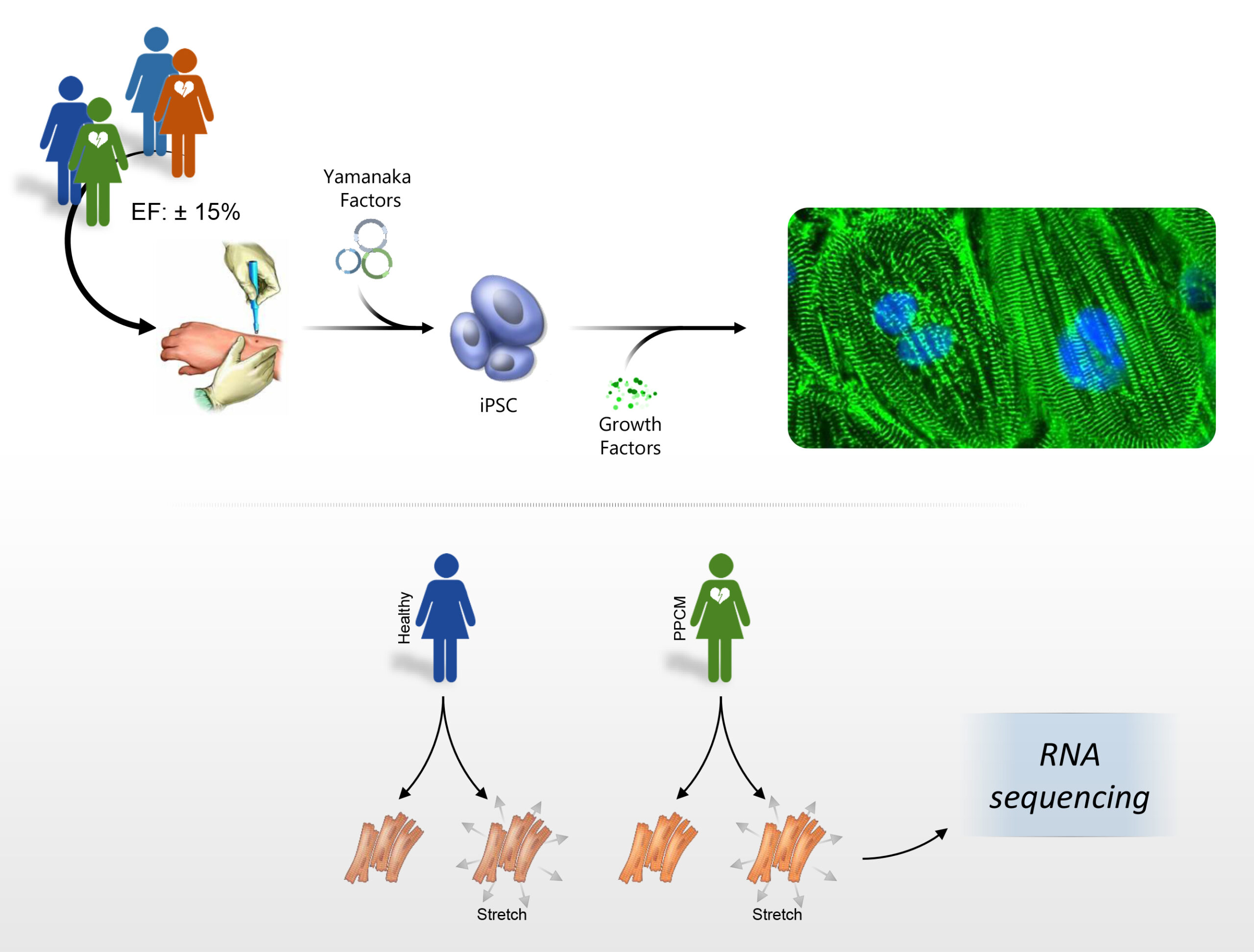
Publication: aberrant lipid metabolism in peripartum cardiomyopathy
Peripartum cardiomyopathy is a rare but potentially fatal form of heart failure that occurs in pregnant women during the last trimester or during the first months after delivery. It affects up to 1:300 pregnancies worldwide with up to 1:3000 pregnancies in western countries. The disease is characterized by severe systolic heart failure and can spontaneously resolve.
However, persistent heart failure often leads to a heart transplant or death. Diagnosing peripartum cardiomyopathy is challenging since there are no specific markers or indications to identify the disease and genetic defects remain to be discovered. Therefore, diagnosis is mostly based on the exclusion of other diseases. Furthermore, guidelines for diagnosing and managing the disease vary between countries, which ultimately leads to a relatively heterogeneous disease definition.
Only a few models have been used to date. While the hypothesized disease mechanisms closely mimic the disease, they are based on tissue-specific genetic defects, which do not occur in humans. In addition, the disease mechanisms are highly complex. Martijn Hoes, Nils Bömer, Karla Arevalo and Peter van der Meer set out to elucidate potential cell-autonomous causes for developing peripartum cardiomyopathy in close collaboration with Denise Hilfiker-Kleiner and Melanie Ricke-Hoch from the Hannover Medical School. To that end, induced pluripotent stem cells were derived from peripartum cardiomyopathy patients and a respective healthy relative, which were differentiated to cardiomyocytes before being mechanically stretched to mimic pregnancy-related pressure overload. RNA sequencing revealed considerably disturbed pathways related to lipid and sterol metabolism in patient-derived cardiomyocytes. Upon further investigation, it appeared that the capacity of patient-derived cardiomyocytes to switch between lipid and glucose metabolism was impaired. These results could also be recapitulated in the principal model for this disease.

The specific cause of peripartum cardiomyopathy have yet to be discovered, but the group was able to demonstrate that the hearts of patients are predisposed to fail under pregnancy-related stress. This is a promising step towards a better understanding of the disease mechanism and, ultimately, better diagnosis and treatment options.
This study is now published in Circulation and was funded by the Dutch Heart Foundation and the European Research Council.